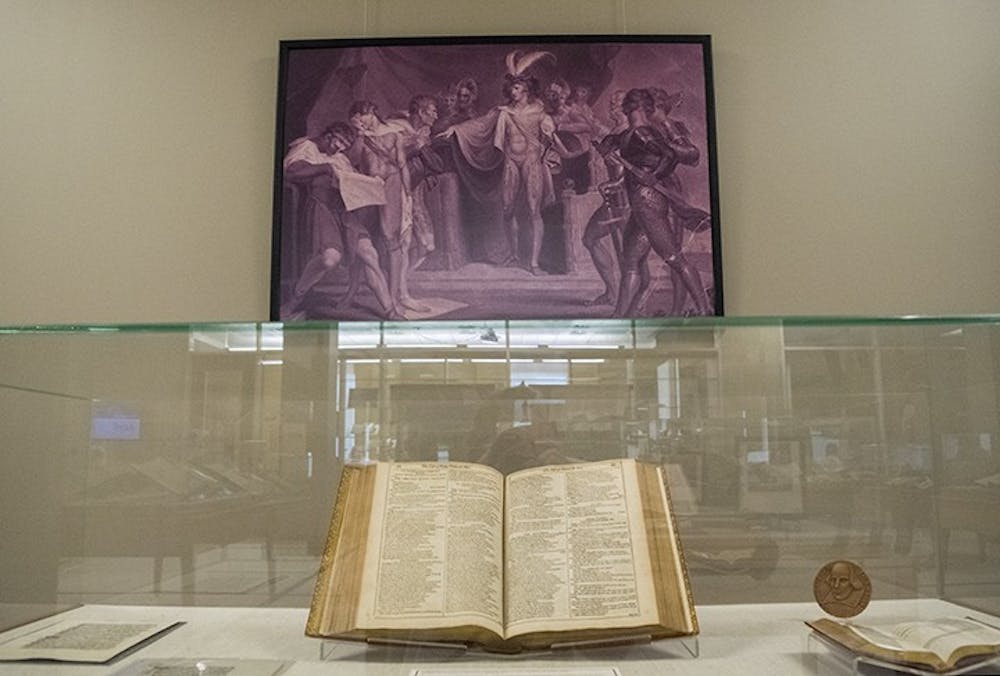Alongside the Bible and Greek mythology, the works of William Shakespeare are some of the most referenced pieces of literature in history. The University of South Carolina is currently hosting a copy of the volume that preserved his works on paper nearly 400 years ago: the First Folio.
Until April 30, the Folio and a wide variety of other documents dating back to the Elizabethan era will be on display in the Ernest F. Hollings Library. Nearly all of the documents and manuscripts belong to USC, but the Folio itself is here on temporary loan from the Folger Shakespeare Library.
Elizabeth Sudduth, the director of the Irvin Department of Rare Books and Special Collections, said that the exhibit is not limited to scholars and academics.
"The Folger's purpose in doing this is to bring Shakespeare to the people," Sudduth said. "We also want kids who are probably too young to have read Shakespeare but might appreciate the stories ... and people who might have encountered Shakespeare in school some long time ago."
USC went through an extensive application process and is the only venue in South Carolina that will be hosting one of the First Folios. The Folger has 82 copies of the original 750 that were printed in 1623. The Folio was compiled by several of Shakespeare's friends after his death, and it was popular enough that three more editions of the Folio were created throughout the years.
Sudduth said that without the Folio, about half of Shakespeare's works would have been lost because they were preserved only as prompt books for the actors who performed them.
"It's that compilation that turned his plays into literature that could be studied," she said, "because it made all of his plays accessible and portable. It gave people the opportunity to experience his language, to really look at what he put together, to analyze them."
Not only was Shakespeare influential in his time, but also his stories and language have continued to resonate in modern culture. Adaptations of his plots appear throughout movies, TV shows and books, not to mention the countless re-creations of his works with their original characteristics. Even Shakespeare did not make up his own stories, but instead drew from history and classical literature.
"He took a story about a king from the past and made it interesting and exciting," Sudduth said. "Again drawing on the material, sort of everyday life, so the the histories, the tragedies ... He took them and developed another story. He embellished the story and developed it around what he read."
Despite the vast length of time since Shakespeare and the challenge that comes with understanding and interpreting his works, Sudduth believes that being exposed in any way is important. Even adaptations that are nearly unrecognizable are valuable in terms of seeing how much influence the past has on modern culture.
"The themes are still all very relevant," Sudduth said. "The kinds of issues he addresses are still with us today. And the language is very beautiful."

